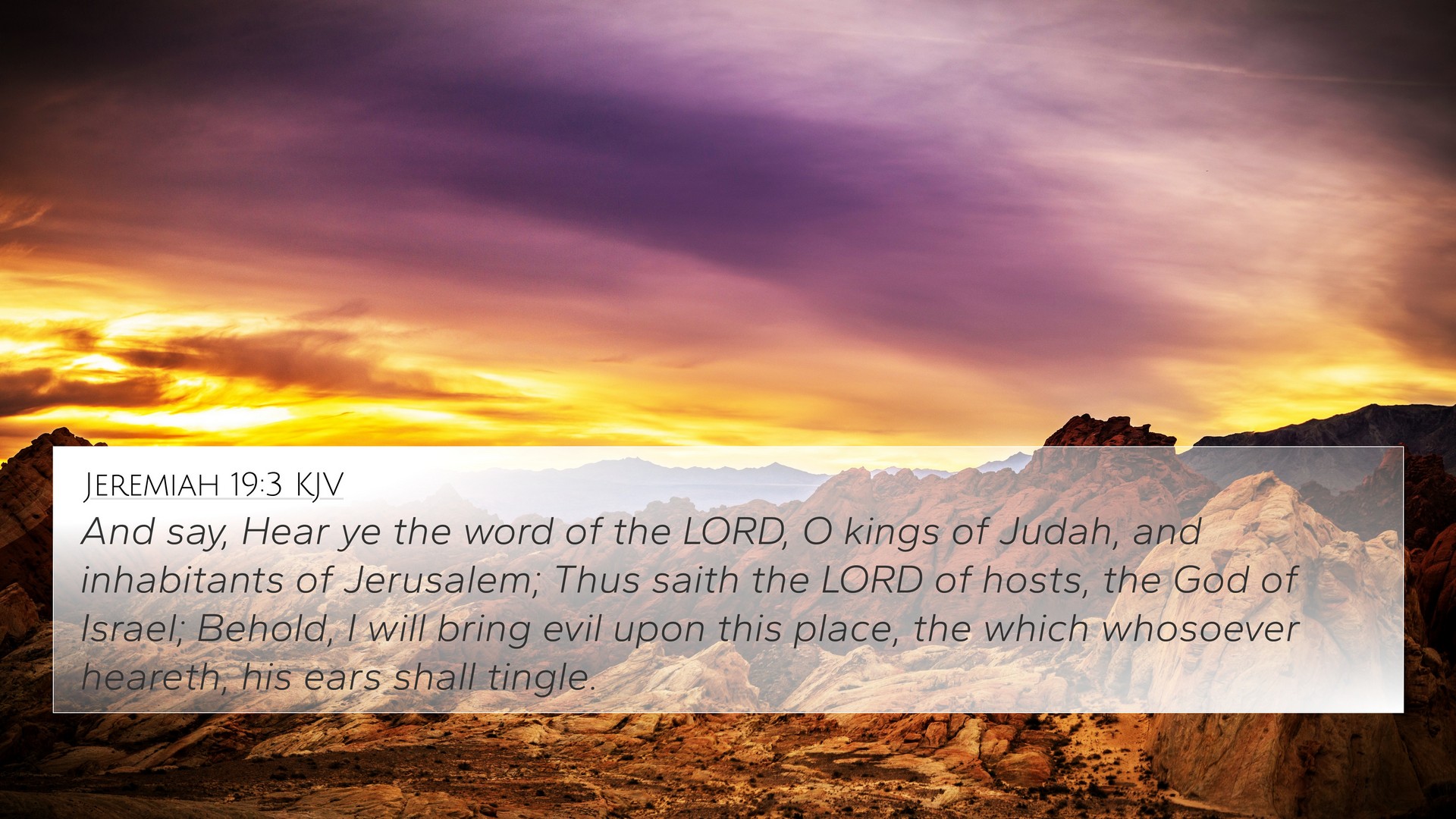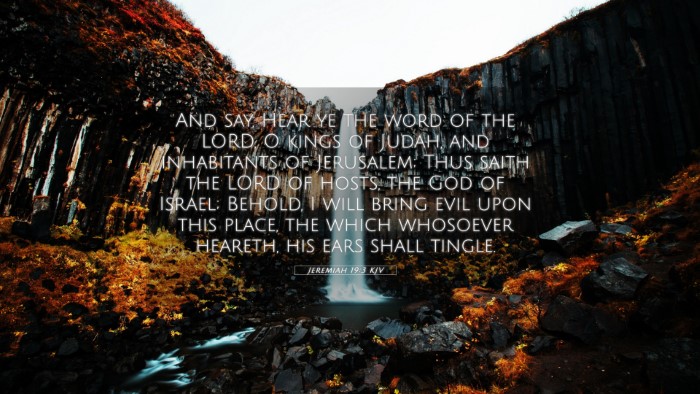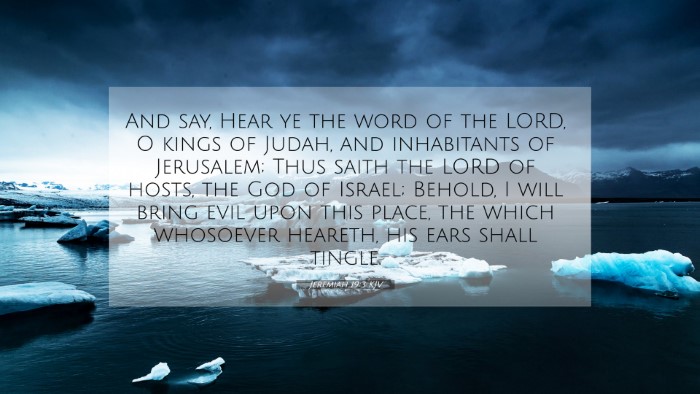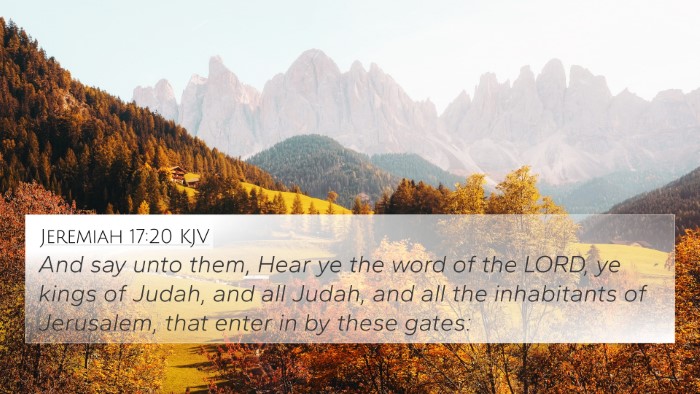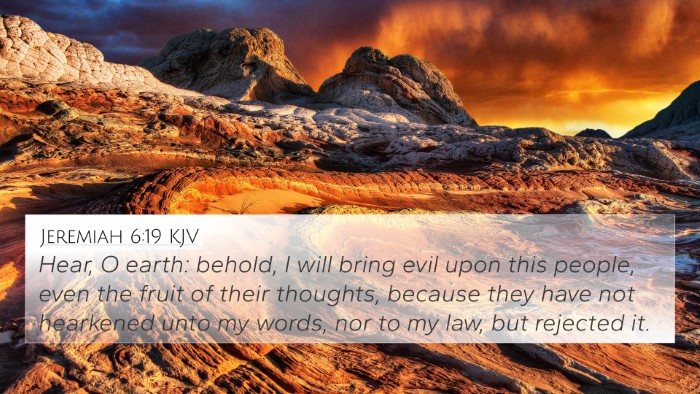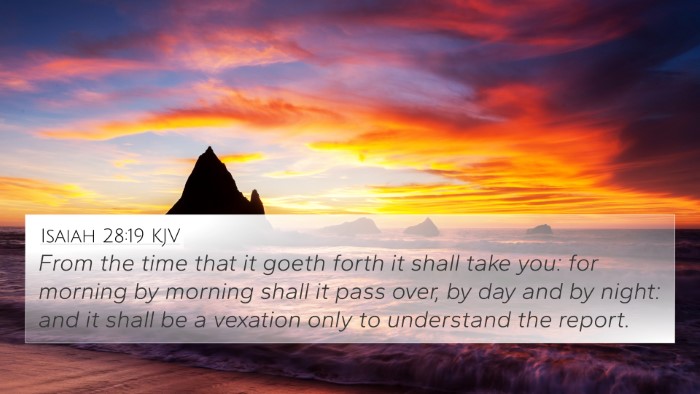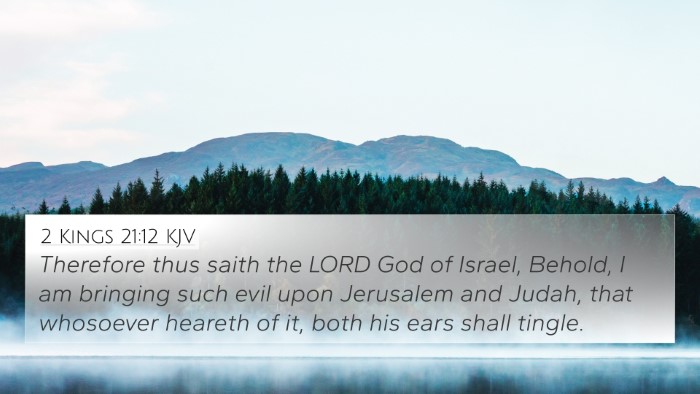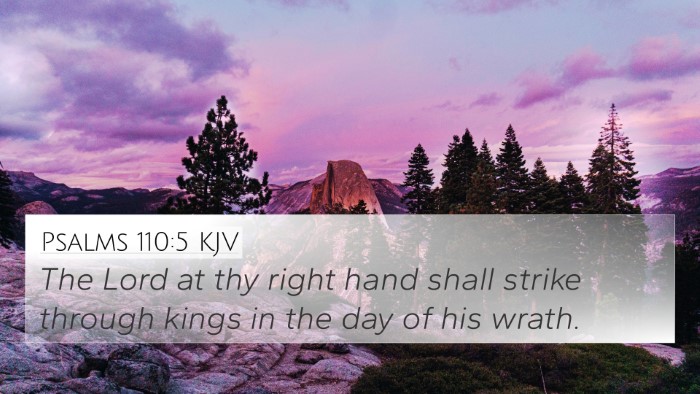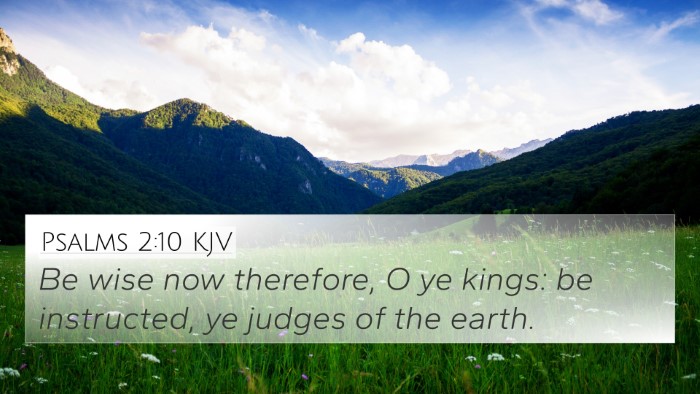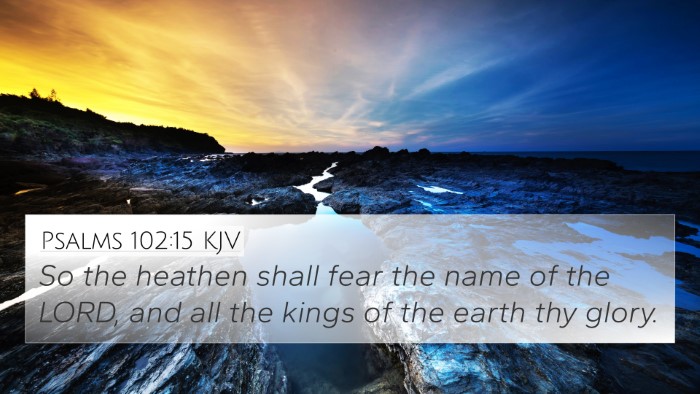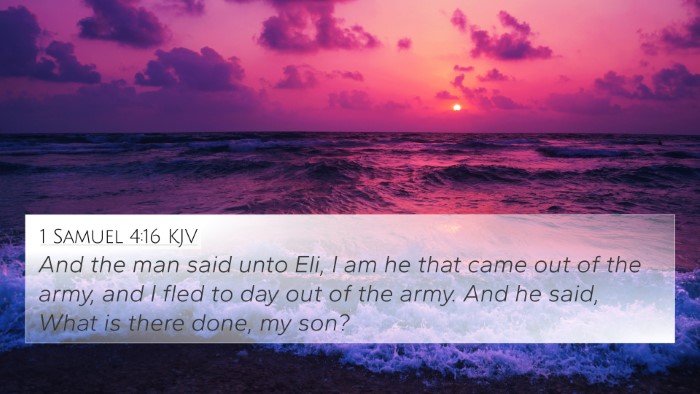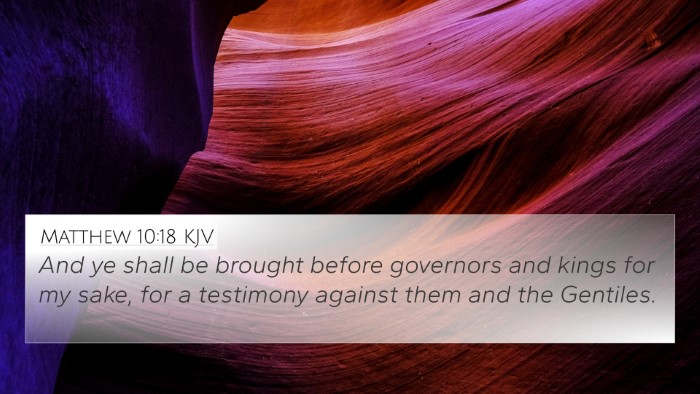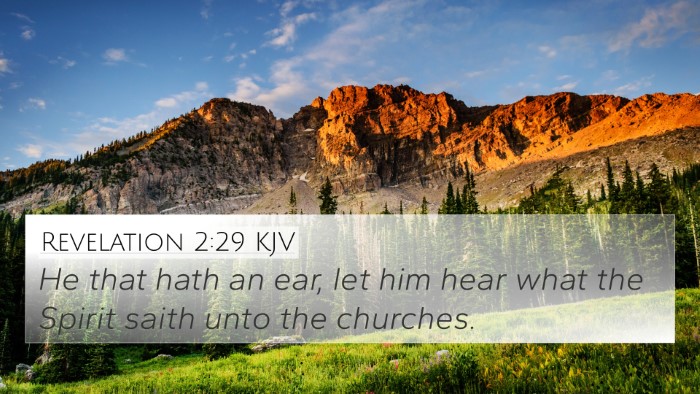Understanding Jeremiah 19:3
Jeremiah 19:3 states:
"And say, Hear ye the word of the LORD, O kings of Judah, and inhabitants of Jerusalem; Thus saith the LORD of hosts, the God of Israel; Behold, I will bring evil upon this place, the which whosoever heareth, his ears shall tingle."
This verse is a divine proclamation from God through the prophet Jeremiah, emphasizing the gravity of impending judgments against Jerusalem. The following is an exploration of its meaning through insights from public domain commentaries by Matthew Henry, Albert Barnes, and Adam Clarke.
Contextual Background
Jeremiah was called to be a prophet during a tumultuous period in Israel's history, characterized by disobedience and idolatry. In this chapter, the Lord instructs Jeremiah to gather the people and warn them of the impending doom that is due to their persistent sinfulness.
Interpretative Insights
-
Divine Warning:
Matthew Henry emphasizes that God's warnings are serious and meant to evoke a response. God's declaration through Jeremiah serves as a alarm for the people to recognize the urgency of their situation.
-
Evil Coming Upon the Place:
Albert Barnes notes that the term "evil" here refers not merely to moral wrongdoing but to disaster or calamity. It indicates the total breakdown of security and safety for the people of Jerusalem.
-
Listening and Response:
Adam Clarke points out that when the verse speaks of ears "tingling," it metaphorically denotes a powerful acknowledgement. Those who hear the warning should be unsettled by its implications, leading to a reconsideration of their actions.
-
The Role of the Prophet:
Jeremiah acts as the mouthpiece of the Lord, conveying messages that are often met with resistance. Commentary from Matthew Henry highlights the prophetic duty of delivering hard truths, even when they are rejected.
-
Judgment for Idolatry:
This verse addresses the consequences of idol worship and disobedience to God's commands—central themes in the prophetic texts. Barnes relates this back to similar warnings found throughout the prophets, contextualizing it within a broader scriptural framework.
Connections Between Bible Verses
To deepen our understanding of Jeremiah 19:3, it is important to examine cross-references that illuminate its themes. Here are some interconnected verses:
- Deuteronomy 28:15: Discusses curses for disobedience.
- Isaiah 13:19: Prophetic reference about the destruction of Babylon, indicative of similar prophetic warnings.
- Ezekiel 7:5-6: Describes the coming evil and calamities for Israel, underscoring a common theme among the prophets.
- Hosea 8:3: Illustrates the repercussions of turning away from God.
- Micah 3:12: Warns of the desolation due to the leaders' corruption.
- Malachi 2:2: Addresses the consequences of failing to obey God's message.
- Acts 7:51-53: Steven's message reflects on Israel's historical pattern of ignoring prophets, which resonates with Jeremiah's warnings.
Thematic Bible Verse Connections
Within the broader narrative of the Bible, Jeremiah 19:3 resonates with various themes:
- Repentance: The consistent call for God’s people to turn back to Him can be seen in several instances throughout scriptures.
- Judgment: The theme of divine judgment is prevalent in both the Old and New Testaments.
- Hope amidst Judgment: Despite the dire warnings, there is often a promise of restoration, as seen in passages like Jeremiah 29:11.
Conclusion
Jeremiah 19:3 serves as a potent reminder of God’s seriousness in conveying His message to His people. As we explore the implications of this scripture through various commentaries and cross-references, we are encouraged to reflect on our own lives and the importance of responding to God's word.
For deeper study, utilize tools for Bible cross-referencing, such as a Bible concordance or cross-reference guide, to uncover additional insights and connections between other relevant Bible verses.
